Everybody has witnessed their cats hiss at something, be it a garden trespasser or us trying to pick them up when they're not feeling well. Although there are numerous reasons why your cat might be hissing, as humans, we've learned to recognize this as an indication that your cat is genuinely irritated and not in the mood to be messed with.
If your cat makes noises that sound like snakes all the time, you might be wondering why cats hiss and what you can do about it. This article has everything you need to know about cat hissing.
Other Topics You Might Like
Helpful Products You Might Like
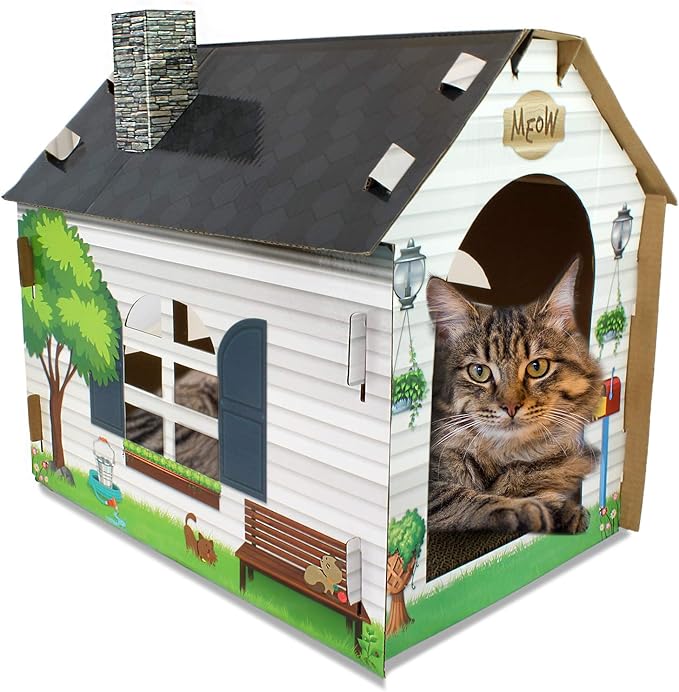
ASPCA Cardboard Cat House

K&H Pet Products Kitty Sill Cat Window Perch
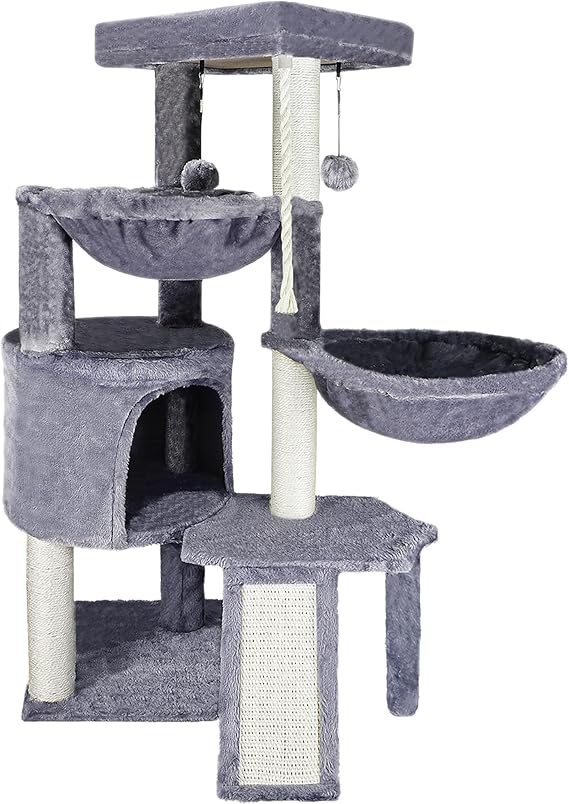
Xin Three Layer Cat Tree with Cat Condo and Two Hammocks
"(Paid Links)" 
What Does Cat Hissing Sound Like?
The sound of a cat hissing resembles the menacing hiss of a snake or the slow release of air from a deflating car tire. When a cat hisses, it forcefully expels air through its mouth, creating a distinctive hissing noise. If you are near the cat, you can even feel the rush of air coming from its mouth during the hissing display. The intensity of a hiss can vary depending on the cat's emotional state, ranging from a quiet, open-mouthed hiss indicating displeasure to an aggressive hiss accompanied by spitting. Hissing is often accompanied by other body language cues that reflect a cat's emotional state.
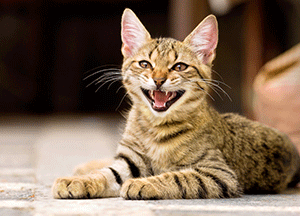
Reasons Why Cats Hiss
Anxiety or Stress
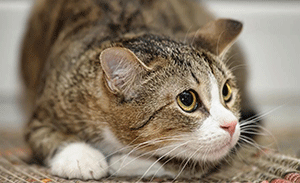
This most commonly happens when a cat is faced with something or someone unfamiliar. It could be a person, a dog, or another cat they don't know. In this case, a hiss means, "Keep your distance. I don't know your intentions. You are making me uncomfortable."
Fear
Similar to anxiety, but more intense and often accompanied by other body language such as flattened ears, raised fur, and a puffed-up tail. In this scenario, the cat perceives a threat to their safety from whatever is in front of them. They may also hiss at an inanimate object that suddenly appears in a familiar place or a machine that activates without warning and startles them. If a cat is frightened, hissing may serve as a warning that more aggressive behavior is possible, indicating that they feel the need to protect themselves.
Petting Aggression
If your cat is one of those who gets overstimulated when petted or handled too much, they may hiss when they've had enough. They will almost always have given you signals before they hiss that your touching has gotten to be too much for them. And if you continue to handle them after they are hissing, you're risking them lashing out. So be more mindful of your cat's signals when you are petting them, and stop as soon as they start showing signs of being uncomfortable.
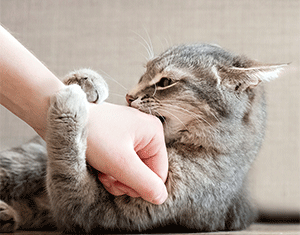
Pain
Cats may hiss when they are injured or in pain. For example, two kittens playing and one hissing because his friend got too rough. It is also possible that your cat is hissing because you touched them in a place they are seriously injured.
Chronic Illness
If a cat is sick and in constant pain, they may hiss often. In these cases chances are you are already probably taking them to the vet for treatment. If this is new behavior, discuss it with your vet. Ask what it means in your cat's illness, and find ways to make them more comfortable.
